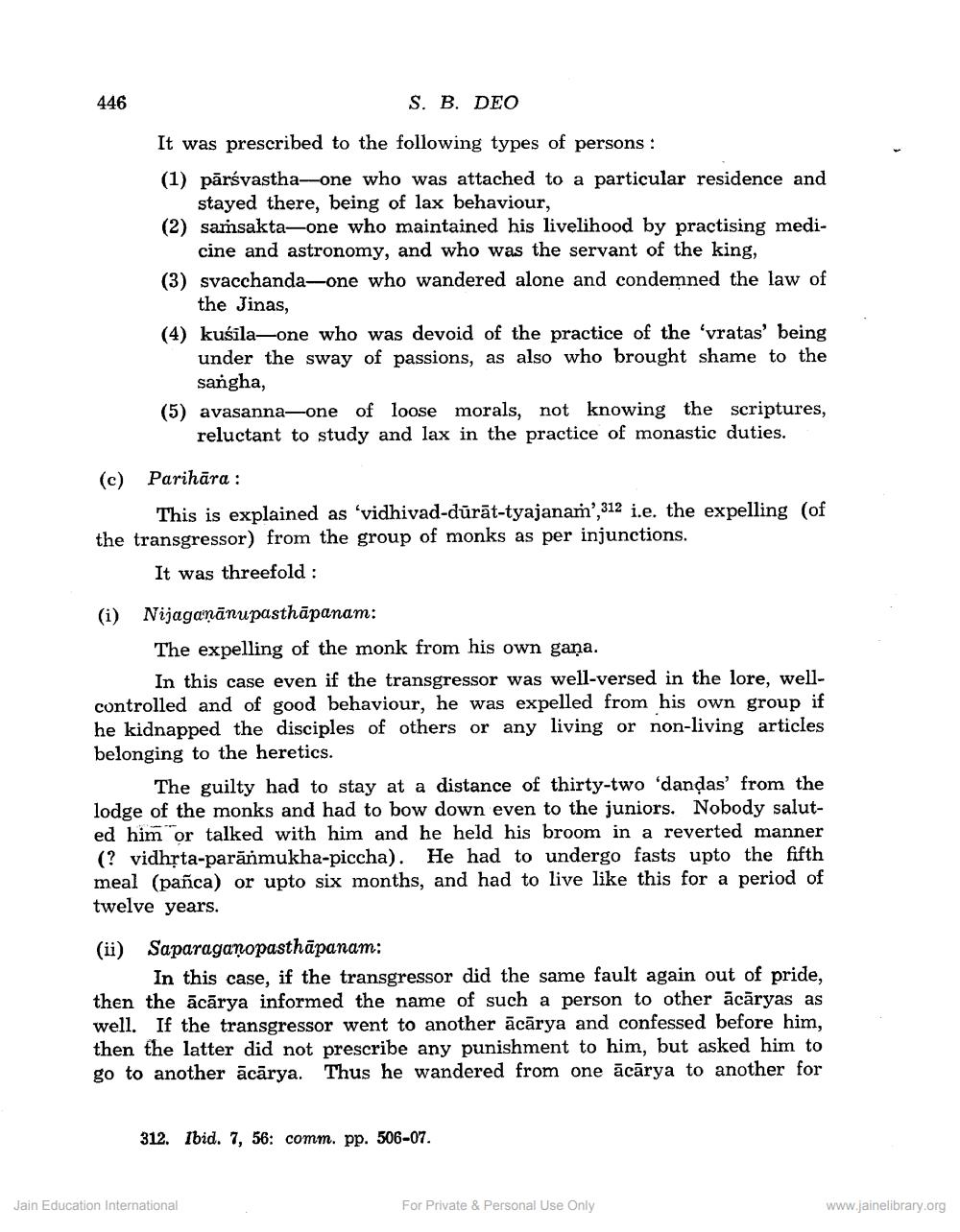________________
446
S. B. DEO
It was prescribed to the following types of persons : (1) pārsvastha--one who was attached to a particular residence and
stayed there, being of lax behaviour, samsakta-one who maintained his livelihood by practising medi
cine and astronomy, and who was the servant of the king, (3) svacchanda-one who wandered alone and condemned the law of
the Jinas, (4) kuśila-one who was devoid of the practice of the 'vratas' being
under the sway of passions, as also who brought shame to the
sangha, (5) avasanna-one of loose morals, not knowing the scriptures,
reluctant to study and lax in the practice of monastic duties.
(c) Parihāra :
This is explained as 'vidhivad-dūrāt-tyajanam',312 i.e. the expelling (of the transgressor) from the group of monks as per injunctions.
It was threefold:
(i) Nijaganānupasthāpanam:
The expelling of the monk from his own gaña.
In this case even if the transgressor was well-versed in the lore, wellcontrolled and of good behaviour, he was expelled from his own group if he kidnapped the disciples of others or any living or non-living articles belonging to the heretics.
The guilty had to stay at a distance of thirty-two dandas' from the lodge of the monks and had to bow down even to the juniors. Nobody saluted him or talked with him and he held his broom in a reverted manner
(? vidhrta-parānmukha-piccha). He had to undergo fasts upto the fifth meal (pañca) or upto six months, and had to live like this for a period of twelve years.
(ii) Saparagañopasthāpanam:
In this case, if the transgressor did the same fault again out of pride, then the ācārya informed the name of such a person to other ācāryas as well. If the transgressor went to another ācārya and confessed before him, then the latter did not prescribe any punishment to him, but asked him to go to another ācārya. Thus he wandered from one ācārya to another for
312. Ibid. 7, 56: comm. pp. 506-07.
Jain Education International
For Private & Personal Use Only
www.jainelibrary.org




